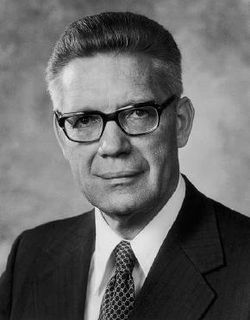A Quote by George Santayana
All the doctrines that have flourished in the world about immortality have hardly affected man's natural sentiment in the face of death.
Related Quotes
Mr. J.S. Mill speaks, in his celebrated work, "Utilitarianism," of the social feelings as a "powerful natural sentiment," and as "the natural basis of sentiment for utilitarian morality," but on the previous page he says, "if, as is my own belief, the moral feelings are not innate, but acquired, they are not for that reason less natural." It is with hesitation that I venture to differ from so profound a thinker, but it can hardly be disputed that the social feelings are instinctive or innate in the lower animals; and why should they not be so in man?
Human stories are practically always about one thing, really, aren't they? Death. The inevitability of death. . . . . . (quoting an obituary) 'There is no such thing as a natural death. Nothing that ever happens to man is natural, since his presence calls the whole world into question. All men must die, but for every man his death is an accident, and even if he knows it he would sense to it an unjustifiable violation.' Well, you may agree with the words or not, but those are the key spring of The Lord Of The Rings
In this world, man is a target of death, an easy prey to calamities, here every morsel and every draught is liable to choke one, here one never receives a favour until he loses another instead, here every additional day in one's life is a day reduced from the total span of his existence, when death is the natural outcome of life, how can we expect immortality.
Nobody here could ever talk about a heaven on earth. Heaven remained rigidly in its proper place on the other side of death, and on this side flourished the injustices, the cruelties, the meanness that elsewhere people so cleverly hushed up. Here you could love human beings nearly as God loved them, knowing the worst: you didn't love a pose, a pretty dress, a sentiment artfully assumed.
So the experience of death is turned into that of the exchange of functionaries, and anything in the natural relationship to death that is not wholly absorbed into the social one is turned over to hygiene. In being seen as no more than the exit of a living creature from the social combine, death has been domesticated: dying merely confirms the absolute irrelevance of the natural organism in face of the social absolute.
Death is a part of all our lives. Whether we like it or not, it is bound to happen. Instead of avoiding thinking about it, it is better to understand its meaning. We all have the same body, the same human flesh, and therefore we will all die. There is a big difference, of course, between natural death and accidental death, but basically death will come sooner or later. If from the beginning your attitude is 'Yes, death is part of our lives,' then it may be easier to face.







































